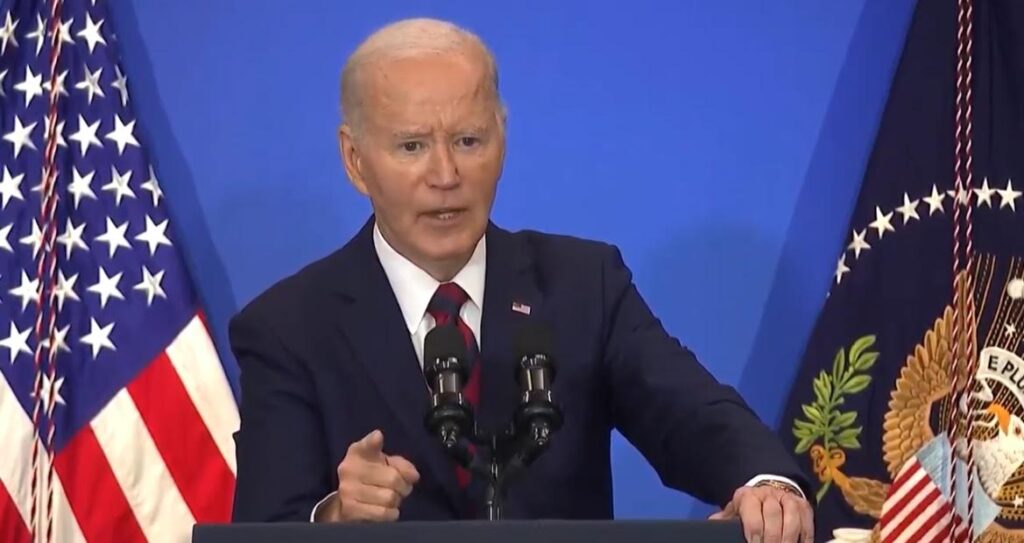On December 10, 2024, President Joe Biden addressed an audience at the Brookings Institution, delivering remarks that focused on the state of the economy under his administration, which he referred to as “Bidenomics.” During his speech, Biden made bold claims about the economic situation, stating that outgoing President Trump would inherit a strong economy. He emphasized that, according to “most economists,” the new administration would start with positive economic indicators and expressed hope that the successor would maintain and build upon the progress made during his term. This portrayal of economic strength seems to contrast with broader public sentiment and opinions regarding inflation and recovery from the pandemic.
Biden’s address also touched on his experience and expertise in foreign policy, asserting his authority at a time when tensions were high internationally. He implied that the world stood on the brink of significant conflict, hinting at a potential World War III. Despite criticisms of his foreign policy decisions over the past several years, Biden maintained a confident demeanor, reiterating that he was well-informed in matters of international relations. This declaration raises eyebrows given the various challenges the U.S. has faced globally during his presidency, demonstrating a disconnect between his rhetoric and the on-the-ground realities.
During the speech, there was a noticeable moment when Biden’s demeanor shifted dramatically. He unexpectedly started shouting, emphasizing his assertion, “If we do not lead the world, what nation leads the world!?” This outburst raised questions about his emotional state and the effectiveness of his communication, particularly in a high-stakes political environment. This moment not only underlined the urgency of his message but also suggested a level of frustration with the prevailing narratives around American leadership and foreign policy effectiveness.
Further adding to the confusion of the event, Biden experienced a technical failure as his teleprompter malfunctioned. This incident escalated the situation, with the president visibly struggling to regain his composure and continue his speech. He remarked, “I lost the electricity here,” which highlighted the challenges he faced in communicating his points effectively. Such moments of disarray can contribute to perceptions of instability, particularly among critics who are quick to highlight any lapses in Biden’s public speaking.
The broader implications of Biden’s address reflect ongoing challenges that his administration faces as it navigates both economic and foreign policy landscapes. While he seeks to project confidence in both areas, public skepticism remains high due to various national and international issues. His statements about the economy may not resonate with citizens feeling the pinch of inflation or the consequences of policy decisions, while his foreign policy assertions seem at odds with the complexities of current global affairs.
Ultimately, Biden’s remarks at the Brookings Institution encapsulated a moment of political theater, blending bravado with signs of distress. His assertions about inheriting a strong economy and leading globally are juxtaposed against real-life challenges that continue to cause uncertainty. As the nation prepares for a new administration, the effectiveness of Biden’s communication and the legacy of his policies will be scrutinized closely, with the public eager to see if progress can be sustained or built upon in the face of ongoing crises.

